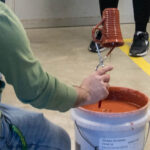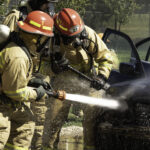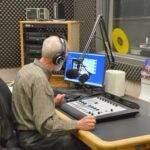Parking in crunch time is a pain, no matter how clear the parking lot may be at Kirkwood Community College. It’s a safe bet that if students could teleport into class the moment it begins, they would. Sadly, they can’t, and those who commute to campus can find themselves with precious little time or space to find parking before class.
It’s a typical day-to-day nuisance, but it’s easy to overlook the impact it can have on general safety. A rushed driver is a dangerous driver, making a crowded parking lot a particularly hazardous environment. But there are alternatives to alleviate the daily stress of finding a parking space.
Kirkwood students are more than capable of meting out the time it takes to get from home or work to class. The earlier you get to campus, the more time you have to find a parking spot, and so on. However, that fails to take into account situations students have no control over.
There is very little anyone can do when they are caught behind a train or become ensnared in a traffic jam after an accident. There are also the seasonal obstacles to consider: travel, in general, is more difficult in the winter.
Then there is class scheduling. When your first class is scheduled can have an impact on your prospects for parking. Students who have classes before 9 a.m. report a much easier time parking campus wide while students who have classes later in the day have a noticeably harder time. Students who do not arrive until after 11 a.m. have a very difficult time finding a place to park.
While parking on campus will always have its challenges, there are ways to alleviate the problem. Carpooling is a tried-and-true tactic. Residents of near-campus housing may consider walking to class rather than drive.
There are several ways the college can address the ongoing parking challenges as well. One long-term solution could be investing in the construction of a new parking lot or expanding existing ones. In addition to infrastructure changes, Kirkwood could implement a shuttle service using passenger vans to transport students between near-college housing and campus.
This service would not only reduce the number of vehicles on campus but also offer a reliable and convenient transportation option for students without access to a car. While such a service would be valuable during the fall and spring terms, it would be especially helpful during the winter months.
While students can take steps to ease parking challenges for themselves and others, Kirkwood also has a role to play in relieving the growing pressure. By investing in student-centered solutions, parking can be one less stressor for those taking classes on campus.
Categories: Editorials, Opinion










